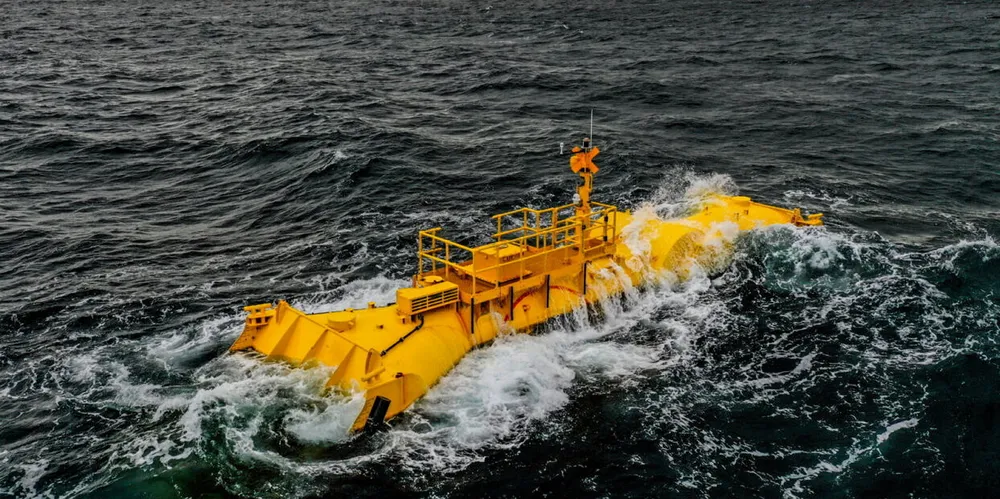Oil giant TotalEnergies dives deeper into wave energy with second project backing in a week
Project aims to combine green technologies to help decarbonise subsea operations in the oil and gas sector, and beyond

French oil & gas supermajor TotalEnergies signed up to its second wave energy project within a week as it joined a major initiative underway off Scotland.
The plan aims to use next-generation wave energy converter (WEC) technology fitted with an underwater battery to show how green technologies can provide reliable low carbon power and communications to subsea equipment of the kind extensively used by the oil and gas industry.
TotalEnergies will team up with two Scottish renewable technology companies on a demonstration project which is already powering subsea equipment off the east coast of Orkney.
The partners says the project has the objective of providing a cost-effective alternative to umbilical cables, described as "carbon intensive with long lead times to procure and install".
The Renewables for Subsea Power project offers participants access to data and results from an extended test programme, taking place at a site 5km east of Orkney.
Other partners on the project include oil and gas industry players Serica Energy, Harbour Energy and PTTEP, plus oilfield services giant Baker Hughes, subsea company Transmark and the Net Zero Technology Centre (NZTC).
A 10kW wave-riding demonstrator unit was connected to Baker Hughes’ subsea controls equipment with servicing by a Transmark autonomous vehicle.
In 2021, Mocean Energy’s Blue X prototype underwent a programme of at-sea testing at the European Marine Energy Centre’s Scapa Flow test site in Orkney where they generated first power and gathered data on machine performance and operation.
Ian Crossland, commercial director at Mocean Energy stated: “TotalEnergies has a long history in Scotland and an incredible track record in offshore operations, and their experience will be extremely valuable as we begin to commercialise our Blue Star product line.”
Dave MacKinnon, TotalEnergies' technology, data and innovation manager said: “Our participation in RSP demonstrates how important it is to us to pursue new ideas and technology that will support the decarbonisation of our oil and gas production business, both here in the UK and across the world.”
Verlume’s own modular seabed battery energy storage system was designed to facilitate the use of renewable powering for harsh underwater environments, using an intelligent energy management system to autonomously maximise available battery capacity in real time.
The £2m ($2.5m) Orkney deployment is the third phase of the RSP project.
In 2021, the consortium invested £1.6million in an earlier phase involving integration of the core technologies in an onshore test environment at Verlume’s operations facility.
Wave and tidal
Ocean Energy Europe (OEE) figures show a growing number of global ocean energy deployments. Canada is also in the game with a 32MW pipeline of wind and tidal stream projects.
The OEE noted that China added more tidal energy capacity than Europe in 2022, due to the addition of a 1.6MW turbine at the grid-connected Hangzhou demonstration project off Xiushan Island.
Overall, however, the OEE has predicted that most growth will be in Europe, where a new target for innovative renewable technologies was included in the European Union's revised Renewable Energy Directive earlier this year, as pat of the flagship ‘Fit for 55’ package.
The directive states that 5% of new installed capacity between now and 2030 should come from innovative renewable energy technologies.
The OEE said that deployment of ocean wave and tidal stream energy could reach 2.9GW by 2030 and predicted that 92% of new deployment will be in European waters.
The UK also gave the sector boost recently, by increasing the maximum bid price for tidal energy from £202/MWh to £261/MWh.
(Copyright)